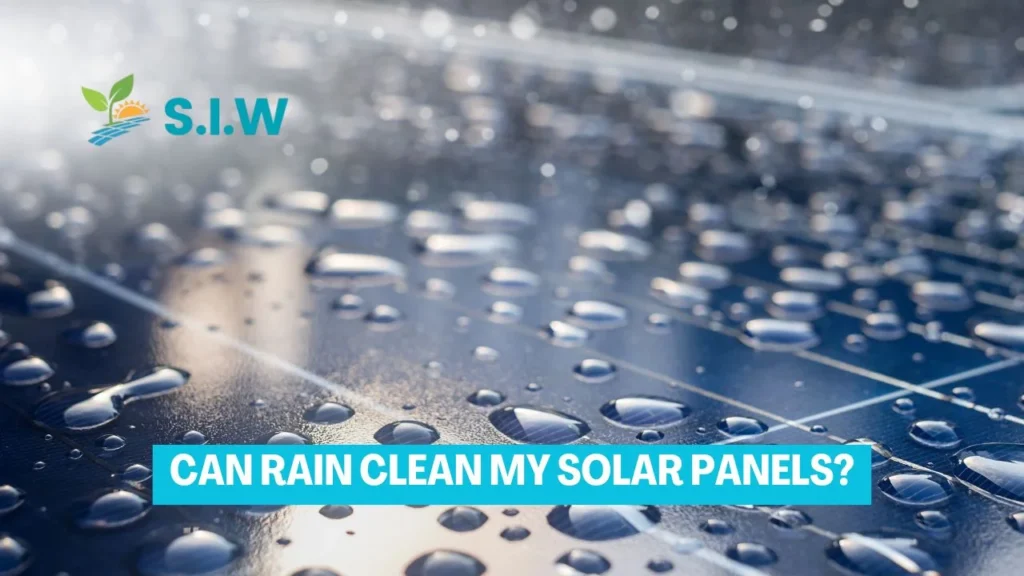In the quest for solar energy efficiency, one common question arises: Can rain clean my solar panels? This question underscores a broader concern about the maintenance and performance of solar photovoltaic (PV) systems. Here, we delve into the mechanics of how rain affects solar panels, the factors influencing this interaction, and practical advice for optimal panel care.
Understanding Solar Panel Cleaning
Solar panels are designed to be low-maintenance. They have no moving parts, and the cleaning requirements are minimal compared to other home appliances. However, maintaining a clean surface is crucial for maximizing energy output. Dust, dirt, and debris can obstruct sunlight, reducing the efficiency of the panels.
The Role of Rain in Solar Panel Maintenance
How Rain Affects Solar Panels
Rain can have a cleansing effect on solar panels, but it is not a guaranteed solution for maintaining their cleanliness. Here’s why:
- Natural Cleaning Action: Rainwater can wash away some of the accumulated dust and debris. The force of falling rain helps to dislodge particles from the panel’s surface, which can lead to improved performance. This process is particularly effective in areas with occasional light to moderate rain.
- Limitations of Rain: Heavy rain, while potentially more effective, might not always suffice in removing stubborn stains or accumulated grime. The dirt or bird droppings that are adhered to the panels may not be fully washed away by rain alone. Additionally, rainwater may leave mineral deposits if it contains impurities.
Factors Influencing Rain’s Effectiveness
Several factors determine how well rain cleans solar panels:
- Type of Rain: Light, frequent rain showers are more effective at keeping solar panels clean compared to heavy downpours, which might not have enough time to thoroughly wash off all debris.
- Panel Angle and Orientation: Panels installed at steeper angles benefit more from rain because gravity helps wash off debris more efficiently. Panels that are flat may retain more dirt, making them less likely to be cleaned by rain alone.
- Environmental Conditions: Areas with high pollution or industrial activity may see less benefit from rain as pollutants can combine with dirt, forming a stubborn layer on the panels.
Practical Tips for Solar Panel Maintenance
Routine Inspections
Regular inspections are crucial for ensuring optimal performance. Inspect your panels at least twice a year to assess their cleanliness and overall condition. This helps identify issues that rain alone may not resolve.
Scheduled Professional Cleaning
For thorough cleaning, it’s advisable to schedule professional solar services. These experts use specialized equipment and cleaning solutions to remove debris and stains that rain cannot address. Professional cleaning ensures that panels are cleaned safely and effectively without risking damage.
DIY Cleaning Techniques
If you opt for DIY cleaning, follow these guidelines:
- Use Soft Brushes and Non-Abrasive Cloths: Avoid using abrasive materials that could scratch the panel surface. A soft brush or cloth is ideal for gently removing dirt.
- Opt for Mild Soaps: If necessary, use mild, non-toxic soaps mixed with water. Avoid harsh chemicals that could damage the panel.
- Avoid High Pressure: Using high-pressure water jets can be detrimental to the panels and their connections. Use a gentle stream of water to rinse the panels.
Monitor Panel Performance
Keep an eye on your solar panel performance through your system’s monitoring tools. A drop in performance can indicate that cleaning is required, whether from rain or manual methods.
Conclusion
While rain can contribute to keeping solar panels cleaner by washing away some surface dirt, it is not a foolproof solution for maintaining optimal performance. Regular inspections, professional cleanings, and careful DIY methods are essential for ensuring your solar panels operate at peak efficiency. By understanding the role of rain in solar panel maintenance and adopting a comprehensive cleaning strategy, you can enhance the longevity and productivity of your solar energy system.








